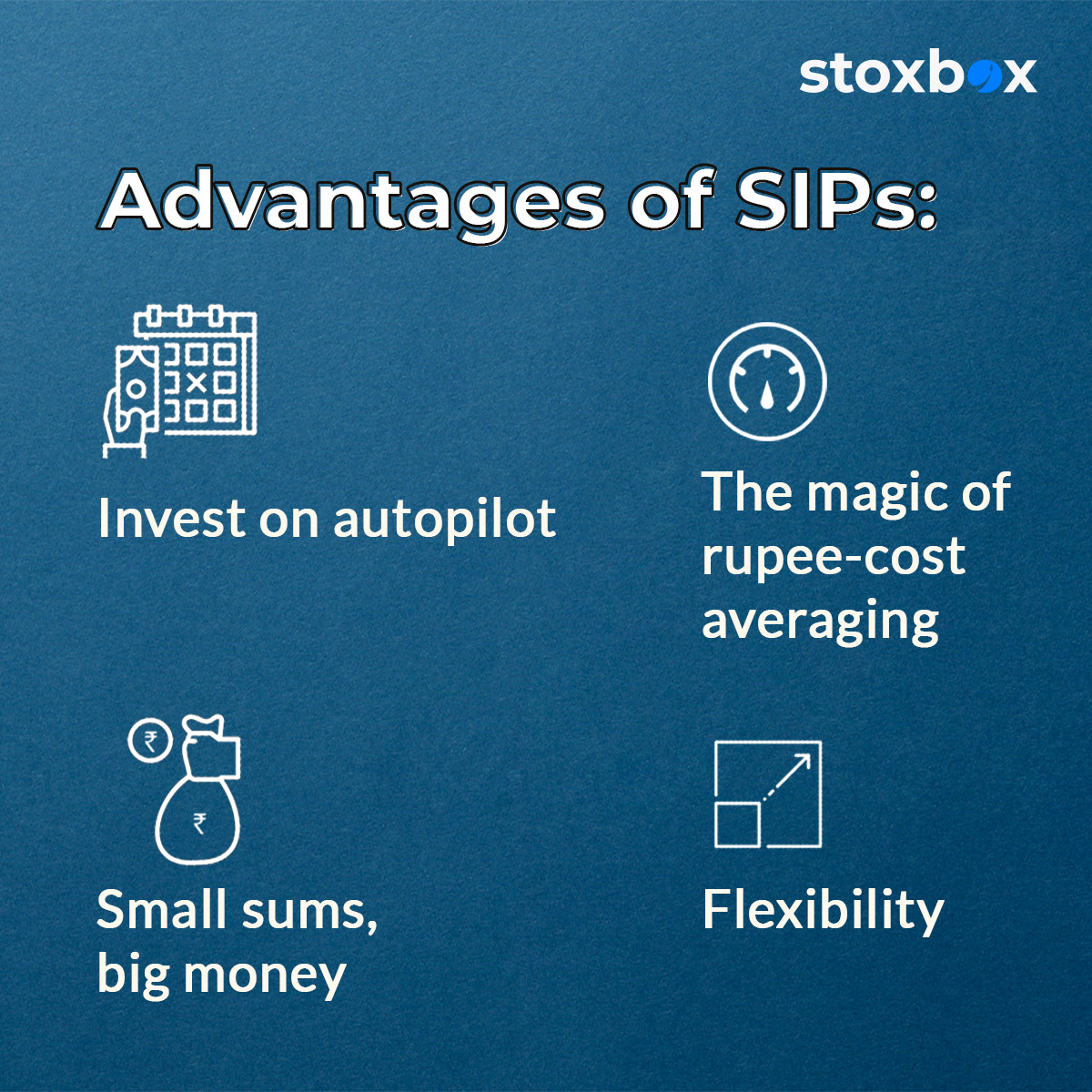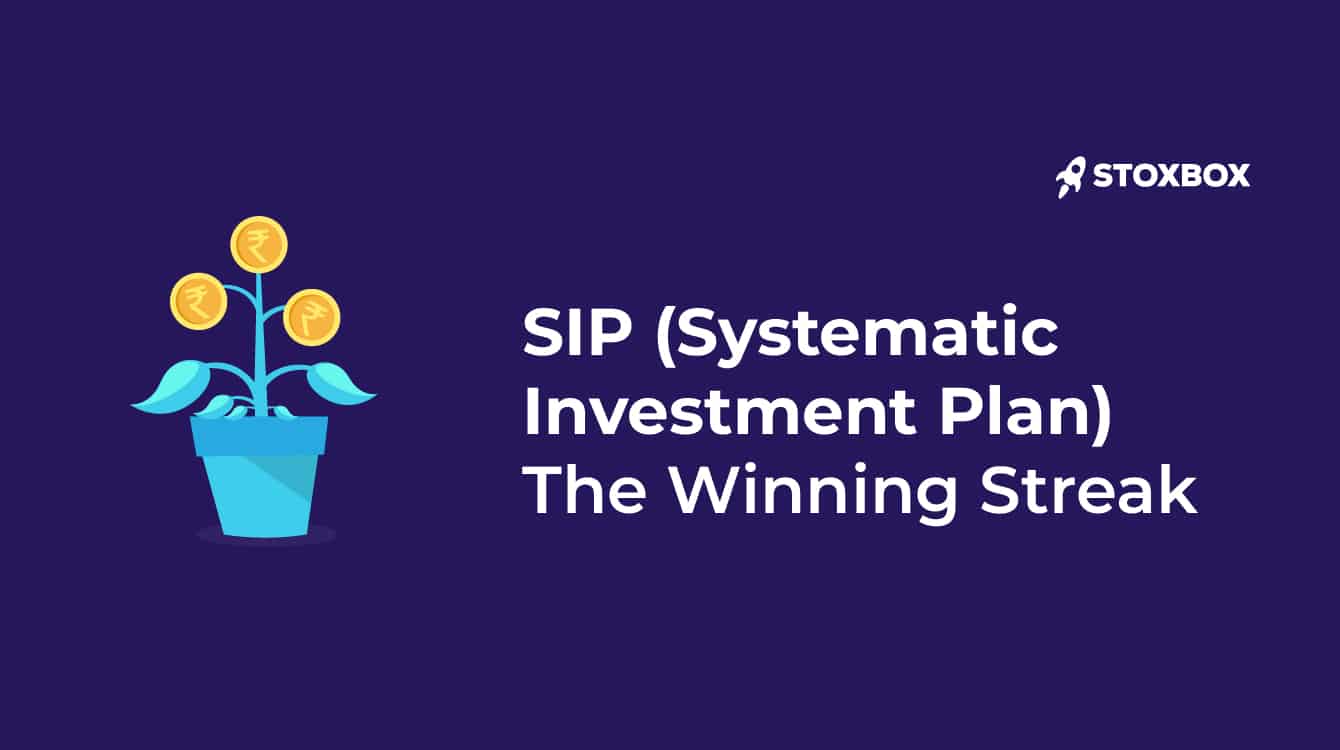Systematic Investment Plan SIP
More often than not, we tend to believe that building wealth is stocking up cash inside a locker or trying to maintain a positive balance in a savings account. While undoubtedly prudent saving is the first step to building wealth, it remains just that – the first step. Building wealth, however, is more about the smarter process of multiplying your savings by investing in the right avenues for a secure future with realistic goals. So is there a way to make investing a habit? Could you do it on autopilot without having to remember it every time? Is it necessary to have a huge amount to invest?
What if we told you that an amount as little as Rs 1,000 a month can go a long way in building wealth? What if we told you there was an investment option that can get you high returns despite market uncertainties?
Well, you only have one answer to all these questions – Meet the SIP!
Systematic Investment Plan (SIP)
A SIP is that friend who will help you inculcate the habit of investing regularly and wisely. SIP stands for Systematic Investment Plan. It is the strategy of investing a fixed amount periodically (typically every month) in mutual funds that are apt for you and will help you achieve your goals.
Here are some of the advantages of SIPs:

- Invest on autopilot – A SIP is a great way to inculcate the habit of disciplined investing as it is a commitment made by you to invest a certain amount regularly consciously. What’s more, once you set up your SIP, the amount is automatically debited from your bank account each month, ensuring that a structured investment is made consistently. In other words, you simply set it up and allow it to run on an autopilot mode. You do not have to worry about missing an instalment.
- Small sums, big money – SIPs allow you to invest small sums regularly. Unlike a fixed deposit where you need a chunk of money, you can start investing with as low as Rs 1,000 every month in mutual funds and allow it to grow over a period of time. That means you do not have to get rich to start investing. You can start investing early on in your career.
The benefits of early investing are as high as, if not more than, those of disciplined investing. Say, Rahul (30) invests Rs 5,000 a month regularly for 20 years with a 10% annual return. He will be able to procure Rs 37 lakhs. However, if he had started investing 10 years earlier, he would have procured 1.13cr at the end of 30 years, given the same base amount and average annual growth of 10%.
- The magic of rupee-cost averaging – SIPs allow you to invest in the ups and downs of the market. Since you get to invest across various market phases, you buy more units when the market is down and fewer units when the market’s peak. In other words, you actually get to do some bargain hunting automatically! And you do this without the risk of having to time the market. You do not need to know when the market is high or when it is falling. Your SIPs do the job for you. So how does this help? This averaging effectively reduces your cost (as you buy in market lows as well) and therefore improves your returns. But remember, for averaging to work, you will need to invest over long periods of time. Only then will you buy on dips.
- Flexibility – In a SIP, the amount that you choose to invest periodically can be changed at any time. The key benefit here is that as you progress in your career and your income grows, you can increase your investment amount and thereby increase the value of your growing returns. This way, you ensure that your corpus grows as your income grows. Besides, there is no lock-in period in SIP, unlike a recurring deposit scheme in banks.
So, going forward, the question is not ‘Are you going to invest?’, but ‘WHEN are you going to invest?’ And the answer is — Start today!
Please call Mr Rahul Kapadia on +91 9819747686 for any further queries.
Frequently Asked Questions
How is SIP different from a lump sum investment?
SIP allows you to invest small amounts regularly over time, spreading your investment across market cycles, while a lump sum requires a one-time investment of a large amount, which may expose you to market timing risks.
Can I modify the SIP amount or frequency after starting?
Yes, most fund houses and platforms allow flexibility to increase or decrease the SIP amount and change the frequency (e.g., monthly, quarterly) based on your financial goals and needs.
What are the benefits of starting a SIP early?
Starting a SIP early gives you the advantage of compounding, as your investments have a longer time to grow. It also helps in building disciplined investing habits and achieving long-term financial goals.
Are SIP investments affected by market fluctuations?
SIPs use rupee cost averaging, which helps mitigate the impact of market volatility by buying more units when prices are low and fewer units when prices are high, reducing the overall investment cost.
Can I pause or stop my SIP temporarily?
Most platforms provide options to pause or stop SIPs temporarily without penalties. This is helpful if you’re facing financial constraints and need to resume investing later.
Are SIPs suitable for short-term financial goals?
SIPs are generally better suited for long-term goals, but they can also be used for short-term goals if invested in funds aligned with lower risks, such as debt or liquid funds.
Is it possible to start multiple SIPs in different mutual funds?
Yes, you can start multiple SIPs across different funds to diversify your investments, cater to various financial objectives, and balance risk across asset classes.
You might also Like.
Double Top Pattern: The Ultimate Trading Guide
Have you ever witnessed a promising uptrend reverse on you...


